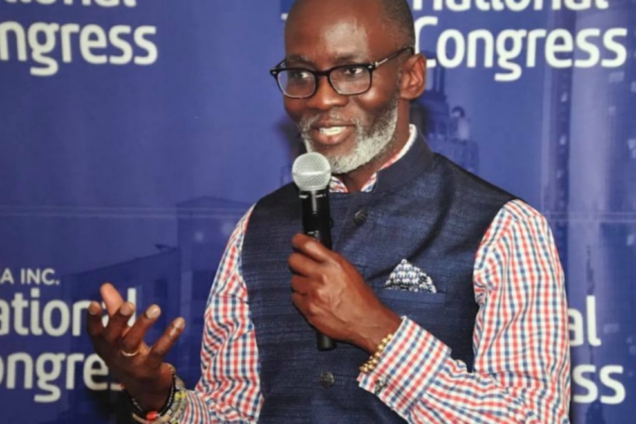NPP stalwart, Gabby Otchere-Darko, has underscored the relevance of government's debt exchange programme in facilitating negotiations with the International Monetary Fund (IMF).
Ghana is currently in talks with the global lender for a deal to help salvage the country's ailing economy.
If approved, the deal will help Ghana to properly balance its books and project better prospects for the economy.
But according to Mr Otchere-Darko, this can be possible if government's domestic debt exchange programme is embraced by all and sundry.
In a tweet on Sunday, he therefore called on all individual bondholders to align with government towards a successful implementation of the said initiative.
"The debt exchange programme is voluntary for individual bondholders but a very necessary evil for our economy.
Its success is critical to restoring macroeconomic stability, securing an IMF prog. It hits those of us holding bonds very hard. A straight no to it is no solution!", he wrote.
Ghana's return to the IMF marks the country's seventeenth engagement with the Fund, since attaining independence in 1957.
The factors which have perenially led to Ghana-IMF interactions include the deprecation of the local currency, fiscal indiscipline, budget deficits and a host of other lapses in economic management.
In its current ongoing negotiation with the Fund, the depreciation of the local currency against other major trading currencies has been identified as one of the key triggers.
Also, the country's debt stock and rising inflation have collectively contributed to its recent IMF engagement, which started in July 1, 2022.
But government has consistently maintained that these factors would not have resurfaced had it not been for the Russia-Ukraine war and the ravages of the COVID-19 pandemic.
Over the period, government communicators and state officials have been explaining how the pandemic and the conflict jointly culminated in the downward spiral of the economy, which they claim was on a good footing prior to these twin disasters.
Meanwhile, according to critics, the country's 17th return to the IMF is due to government's own mismanagement, reckless borrowing and corruption.
It is however expected that, the engagements with the IMF will be concluded before the first half of the year, to aid government's plans of rebuilding the economy.
Latest Stories
-
Boost for education as government commissions 80 projects
6 mins -
NAPO commissions library to honour Atta-Mills’ memory
17 mins -
OmniBSIC Bank champions health and wellness with thriving community walk
19 mins -
Kora Wearables unveils Neo: The Ultimate Smartwatch for Ghana’s tech-savvy and health-conscious users
23 mins -
NDC supports Dampare’s ‘no guns at polling stations’ directive
26 mins -
Police officer interdicted after video of assault goes viral
43 mins -
KNUST’s Prof. Reginald Annan named first African recipient of World Cancer Research Fund
44 mins -
George Twum-Barimah-Adu pledges inclusive cabinet with Minority and Majority leaders
2 hours -
Labourer jailed 5 years for inflicting cutlass wounds on businessman
2 hours -
Parliament urged to fast-track passage of Road Traffic Amendment Bill
2 hours -
Mr Daniel Kofi Asante aka Electrician
2 hours -
Minerals Commission, Solidaridad unveils forum to tackle child labour in mining sector
2 hours -
Election 2024: Engagement with security services productive – NDC
2 hours -
Retain NPP for the good of Ghana – Rebecca Akufo-Addo
2 hours -
‘Let’s work together to improve sanitation, promote health outcome’ – Sector Minister urges
2 hours

